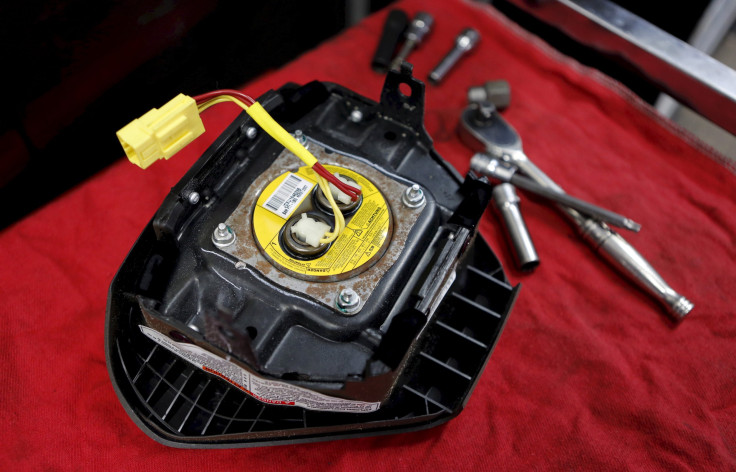Takata Shares Tumble 20% After Report Puts ‘Worst-Case’ Air Bag Recall Scenario Cost At $24 Billion

Takata Corporation’s shares tumbled 20 percent on the Tokyo Stock Exchange Wednesday after a report said the Tokyo-based company’s air bag recalls may cost 2.7 trillion yen ($24 billion) in a “worst-case” scenario. The report comes as the troubled air bag manufacturer becomes a part of the largest recall in the history of the auto industry.
A source close to Takata told Bloomberg on the condition of anonymity that the company’s recall would involve 287.5 million air bag inflators. The source also added that Takata and its automaker clients were still trying to work out how the costs would be shared. However, a Takata representative declined to comment, Bloomberg reported.
The latest projection reportedly exceeds a February estimate, by a Jefferies Group analyst, that Takata's total costs for the recalls would be about $7 billion.
The faulty air bags have been linked to 11 deaths and about 100 injuries, with nine of those deaths in the United States. In November, Takata agreed to pay a $70 million fine for safety violations and the company could face deferred penalties of up to $130 million as part of a settlement with U.S. safety regulators.
So far, approximately 34 million vehicles are potentially affected in the U.S., and another 7 million have been recalled worldwide. The National Highway Traffic Safety Administration is investigating all Takata air bag inflators, which have been known to rupture with excessive force in some cases, spraying metal shrapnel into the cabin.
The company has been given time until the end of 2019 to determine the cause of the defect or prove that their air bags are safe.
Orbital ATK, a Virginia-based research firm hired by a coalition of 10 U.S. automakers, said in its findings last month that the rupturing of Takata air bags was caused when moisture seeped into the inflators.
“It is not difficult to imagine how hard it will be for Takata to rebuild its financial standing if the expenses are apportioned,” Takaki Nakanishi, an analyst with Jefferies, wrote in his Feb. 24 report, according to Bloomberg. “The Japanese automotive industry cannot avoid seriously adopting an exit strategy from the Takata issue.”
The benchmark Nikkei 225 Index closed Wednesday 1.31 percent lower.
© Copyright IBTimes 2025. All rights reserved.



















